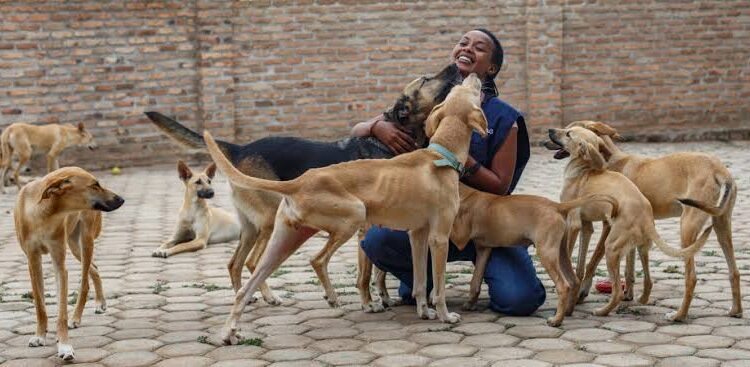By Emmanuel Nduka Obisue
Dog owners in Rwanda have been directed to register their pets with village authorities and provide proof of annual rabies vaccination, following new measures announced by the Rwanda Agriculture and Animal Resources Development Board (RAB).
The directive, issued on August 29, is grounded in the 2008 Animal Health Law and a 2020 ministerial order, both of which seek to curb irresponsible dog ownership and prevent risks to communities.
Authorities say the regulations are designed to strengthen public health and safety, especially as more families in urban areas, including Kigali, are keeping dogs for home security.
“These measures are not only about protecting households but also about safeguarding the entire community,” said Solange Uwituze, Acting Director General of RAB.
In addition to mandatory rabies vaccination, the rules require that dogs taken outside the home must be under adult supervision, kept on a leash, and wear a muzzle in public spaces. Non-compliance, RAB warned, will attract legal penalties.
Rabies prevention is at the heart of the directive. The viral disease, which attacks the central nervous system, is usually transmitted through dog bites and is almost always fatal once symptoms appear.
Dr. Richard Nduwayezu, Director of Research and Partnerships at the Welfare for Animals Guild, emphasized the urgency of stronger rabies surveillance, noting that “even a single case is considered an outbreak.”
“When a dog infects you with rabies, it almost always leads to death. We have also seen dogs abandoned on the streets by owners, and rabies does not only affect people but also livestock. For instance, in Eastern Province, there have been cases of dogs biting cattle. Authorities are therefore committed to ensuring that rabies is eradicated within the next five years,” he said.
Nduwayezu pointed out the lack of reliable systems at village level to monitor vaccination records. “Information on vaccinated and unvaccinated dogs should be entered into a database, just like during Covid-19 when people’s vaccination status was easily accessible,” he suggested.
He also warned about the dangers of stray and uncontrolled dog populations, noting that one female dog can produce up to 20 puppies annually. Left unchecked, its descendants could number in the thousands within just six years, fueling neglect, disease, and the spread of rabies.
He stressed that rabies vaccination is not optional but a legal obligation. “Each dog must have an official vaccine card signed by a licensed veterinarian and wear a collar with the owner’s contact information. These can easily be obtained from veterinary clinics and pet shops in Kigali,” he said.
According to the Fifth Population and Housing Census conducted by the National Institute of Statistics of Rwanda (NISR), private households across the country own an estimated 66,000 dogs.
Eastern Province accounts for the largest share with 21,504, followed by Kigali City with 13,710 and Southern Province with 13,570. Both Northern and Western Provinces have fewer than 10,000 dogs each.




































